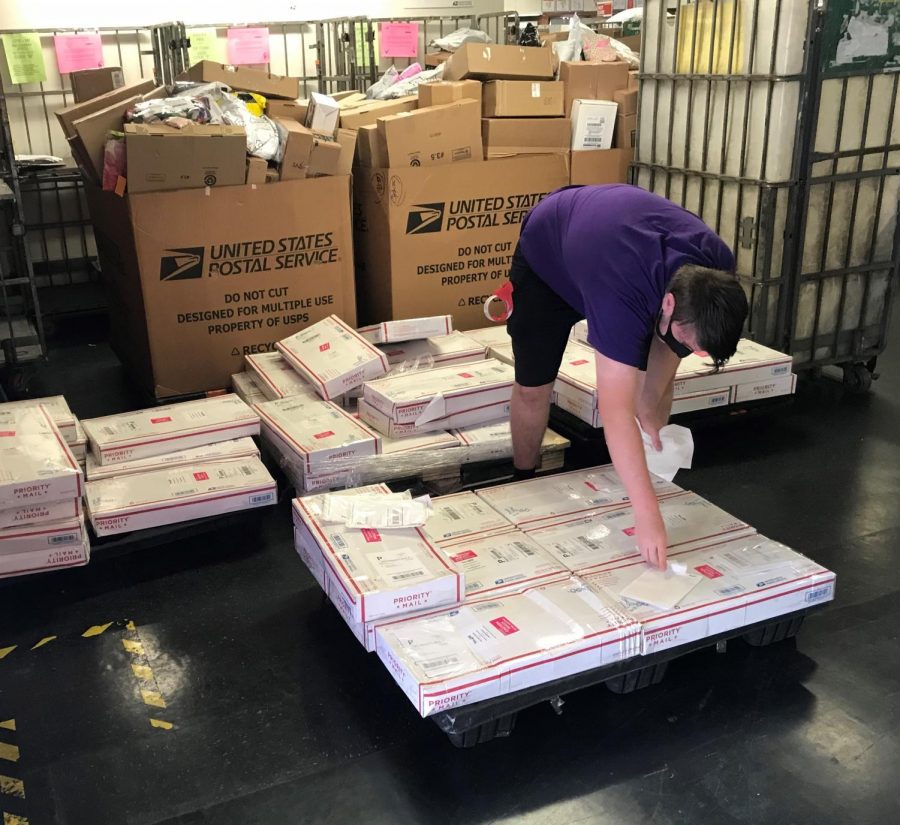Restock, repackage, resell
Chris Reid’s business of reselling goods has grown during the pandemic due to high demand for non-essential items
When the COVID-19 pandemic hit, everyone remembers being met with empty shelves at grocery stores—no toilet paper, hand soap, flour and other items. As this turned into a problem for many, Senior Chris Reid took it as an opportunity for a business he has had since his freshman year of high school, where he sources non-essential products from supply chain shortages and then resells them on Amazon.
According to Reid, companies like to have a “tight supply” of their goods, meaning that if they project they’re going to sell 3,000 items, they won’t stock more than 4,000. Because no company anticipated how drastic the pandemic’s effects would be, there were many non-essential items with high demand and low supply that Reid was able to source and sell, such as sporting goods like weights. Even though Reid was able to capitalize on the home-gym craze, the pandemic made his business a whole lot busier.
“Because the demand was so high, it was hard to keep up with the logistics of getting everything out on time and responding to customers and everything. I’m just one person and I have about 5000 orders in a month,” Reid said.
In regard to profits, Reid said there are “low margins but high volumes,” meaning that even if he only makes $10 off of one item, if he sells hundreds of that item it ends up being worth it. While this may seem like an opportunistic business model, Reid believes that if people want something enough to pay a higher price, then that’s their choice.
“People have been saying, ‘You’re charging $200 for a set of dumbbells when they normally go for $110,’ and then people just assume that I’m trying to rip them off. I guess what I’m trying to say is that it’s not like that, because if somebody is willing to pay a price for a certain item, they should be able to pay that price just to have it.”
Right now, Reid has one person working for him two days a week to help with organization. Reid spends anywhere between two and 10 hours a day managing the business. According to Reid, the structure of his business is “ever-changing,” so he doesn’t know if he will continue into college.
“Currently the business is based off of the supply shortages due to COVID-19. By the time I go to college, the supply chain will probably be caught up and there won’t be as many opportunities, so it probably won’t be worth it for me to take the time,” Reid said. “But, I’m always looking for an opportunity 24/7.”

My initials may be eh, but my stories sure aren't! I'll love you forever if you peel me a tangerine.



